It has been eighteen months since 250 families in Cabral, the communal section that cuts north to south through the middle of Tomond, joined the CLM program. It is time for these families to graduate.
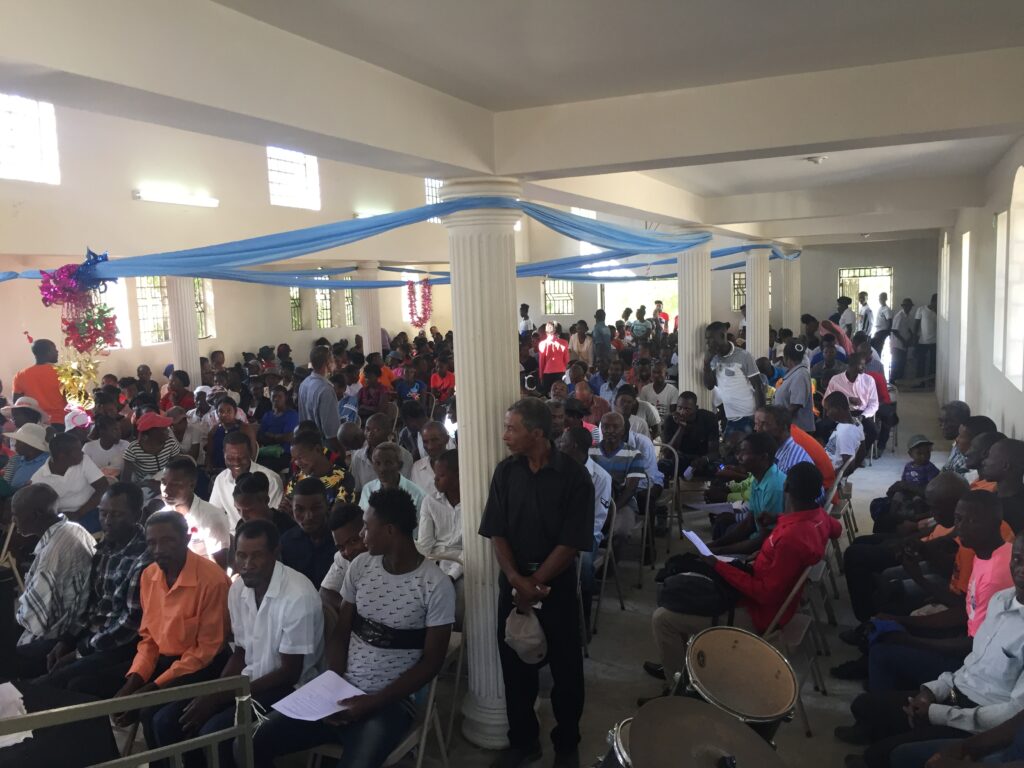
CLM graduations are normally big celebrations. We have had single ceremonies for over 300 graduates, inviting each to bring two members of her family. We invite community leaders, members of Fonkoze’s central office staff, and as many members of the CLM staff as we can muster. We sometimes have delegations of foreign visitors as well. The ceremonies can take several hours, and they include prayers, speeches, songs, skits, and the distribution of certificates. Many graduates choose godparents for the occasion, and these men and women bring and distribute beautifully-wrapped gifts. The events close with a hearty meal. Some are held in communities that would rarely see such large gatherings, and so they draw numerous onlookers, and most if not all of these also join the meal.
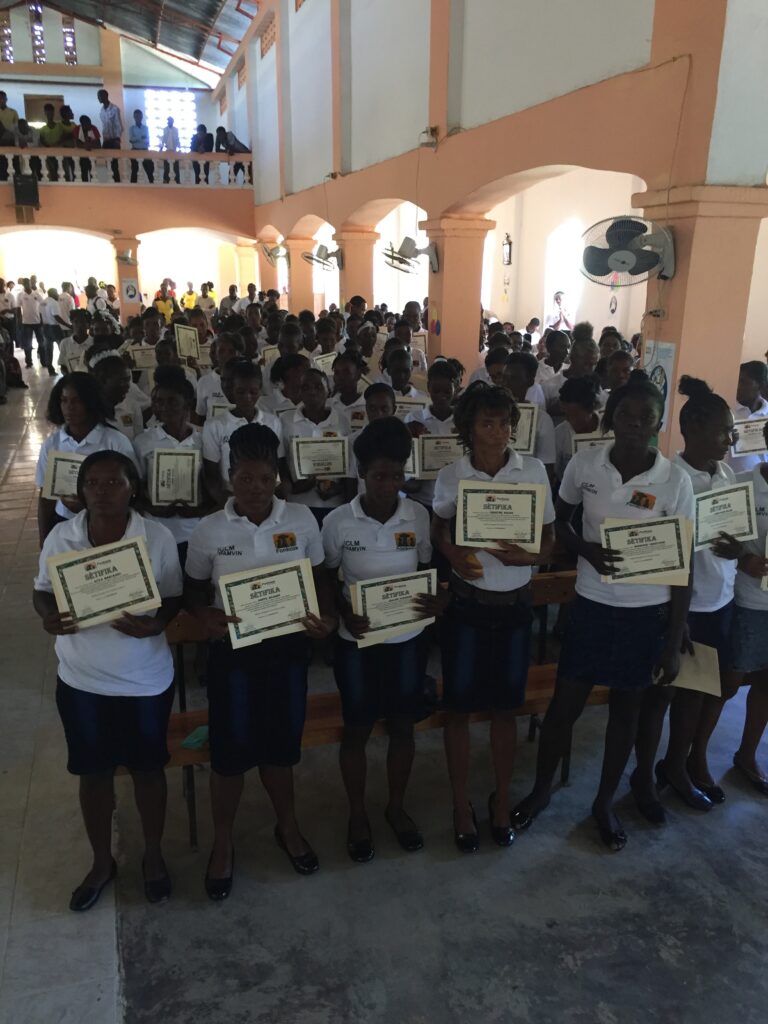
But since early March, when COVID-19 first appeared in Haiti, the Haitian government has forbidden gatherings of more than 10 people. Schools and churches have been closed. It established social-distancing guidelines for any meetings that would nevertheless be held.
The CLM team faced a challenge. We could not hold the kind of graduation we like to organize for the families in Cabral, the sort of festivity they deserve. At the same time, we didn’t feel comfortable doing nothing to acknowledge the eighteen months we spent with them. They worked hard to make the progress that they made, and we thought it important to honor them for their efforts.
So, over the course of two weeks, the team is organizing 25 micro-graduations, at a half-dozen different sites, to make sure that all the graduates experience at least a little bit of a celebration. The women are gathering in three to five small groups per day to receive their certificates and a modest amount of recognition.
The event’s program is a little different than the one we’ve used in the past. It starts with hand-washing. Each site is equipped with a bucket of treated water and some soap. The women then receive their Fonkoze jerseys and a mask.
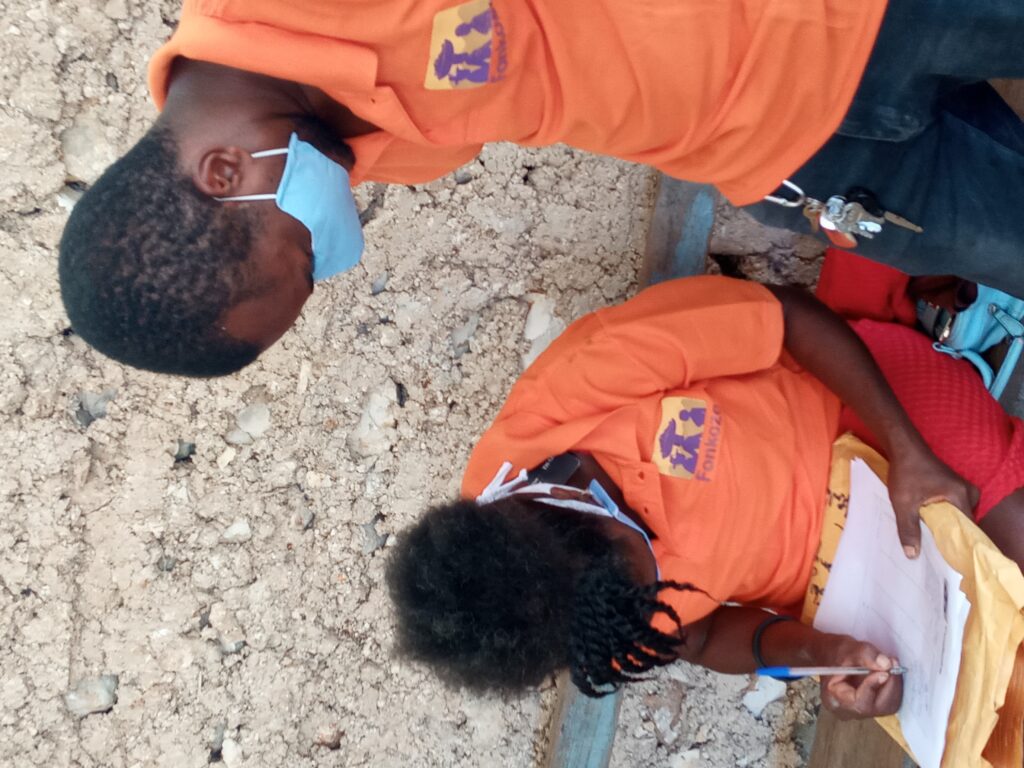
The program then turns to training about the coronavirus. The women have been hearing about the disease during their weekly home visits for over a month, but bringing them together in small groups seemed like an important chance to reinforce what their case manager has been telling them. They learn about the dangers that COVID-19 presents to them and their families and the measures they can take to mitigate their risk.
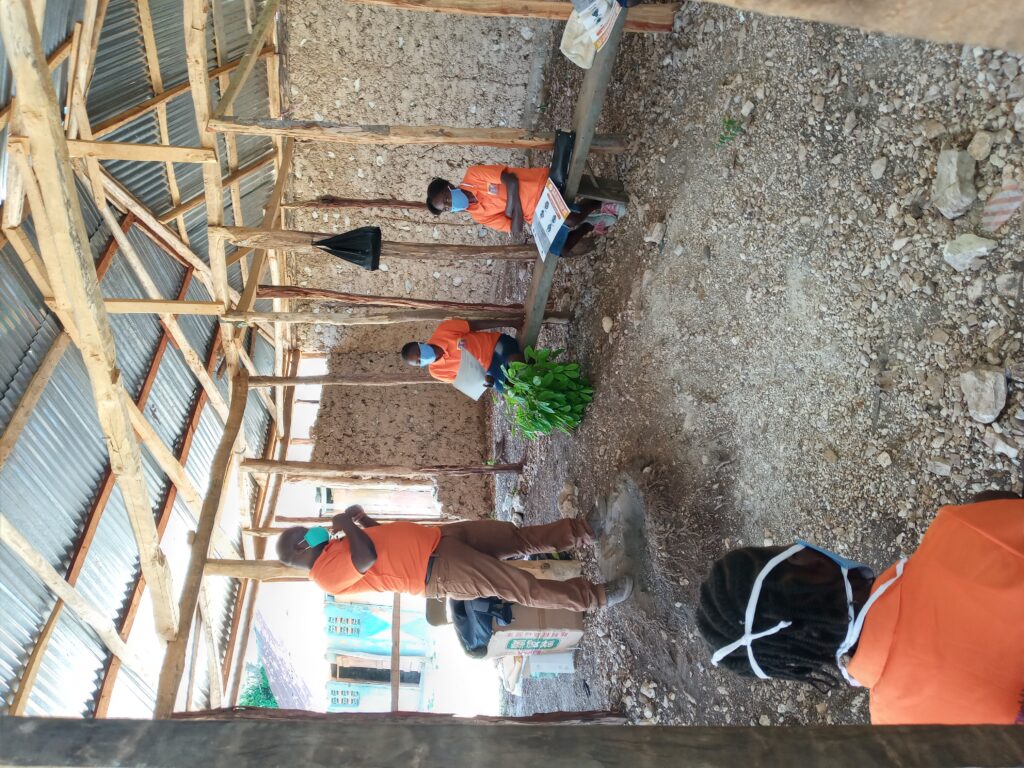
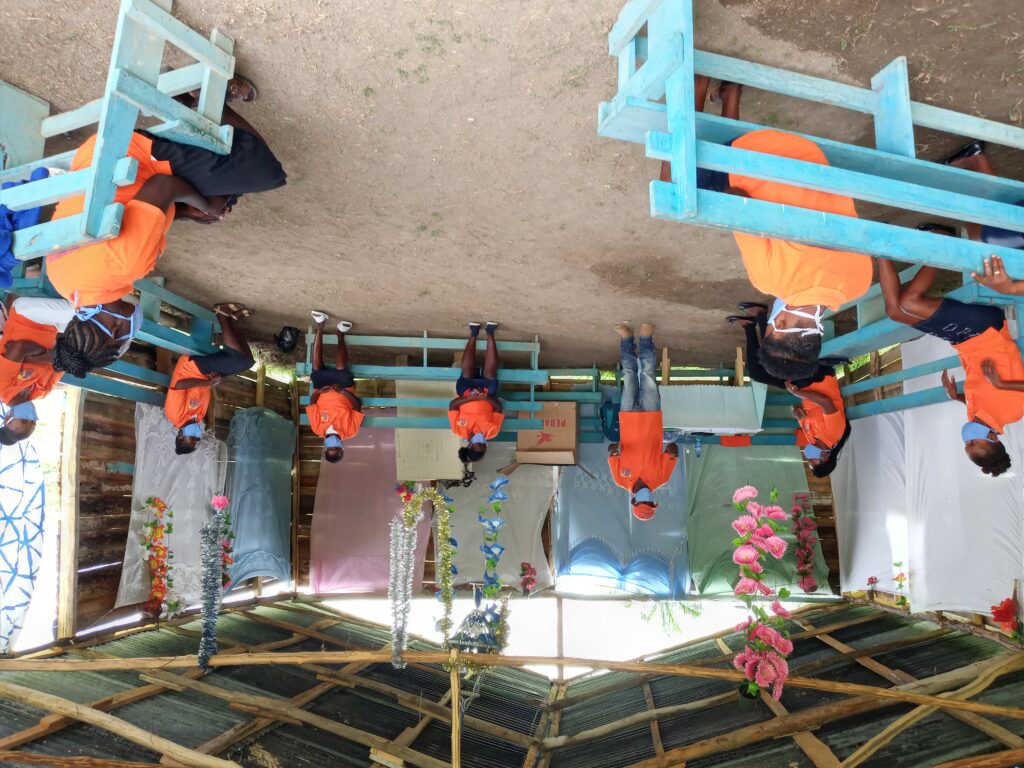
Then the graduation proper begins. A member of the CLM staff explains the program’s decision to hold multiple small graduations. We describe it as part of the need we feel to honor eighteen months of the women’s hard work and the progress they have made. But then we open the floor, asking each woman to talk about her experience. Everyone talks. This would be impossible at our usual graduations, where only five to ten women have the chance to share their stories.
None of the women speaks for long, and most speak quietly, staring thoughtfully at the ground as they mention the changes they’ve seen in their lives. Two sisters, Rosemarie and Rosemanie, shared different perspectives on their progress. Rosemarie spoke of the ways local merchants now offer her credit no questions asked. “They see that I’m able to pay.” Rosemanie was grateful for lessons she’d learned. “I know better now than to sell animals to cover small expenses. I’m better off selling a day of fieldwork to earn the cash.”
Many of the women talk about the houses they have built with the program’s help. Monique described how she used to have to move pots and pans around in her home to catch the rain. “Now if it starts raining after I’ve gone to sleep, I don’t know until the morning.” Mimose talked about how she no longer has to bring all her children to her sister’s house when it rains. Leziane said she likes the fact that she doesn’t have to scrape a layer of fresh mud from her floor after each storm passes.
Most also talk about how little they had when the program began and about the modicum of wealth they were able to accumulate. We hear inventories of goats, pigs, turkeys, and other livestock. They talk about the small businesses they created. They talk about investments they became capable of making in their farming.
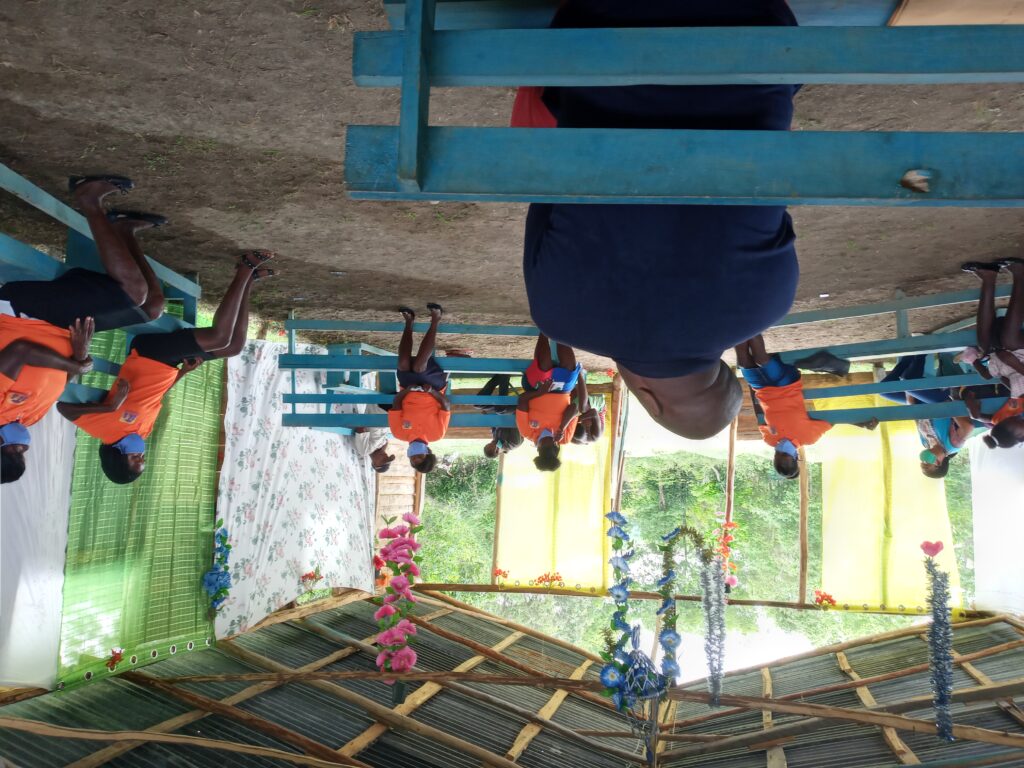
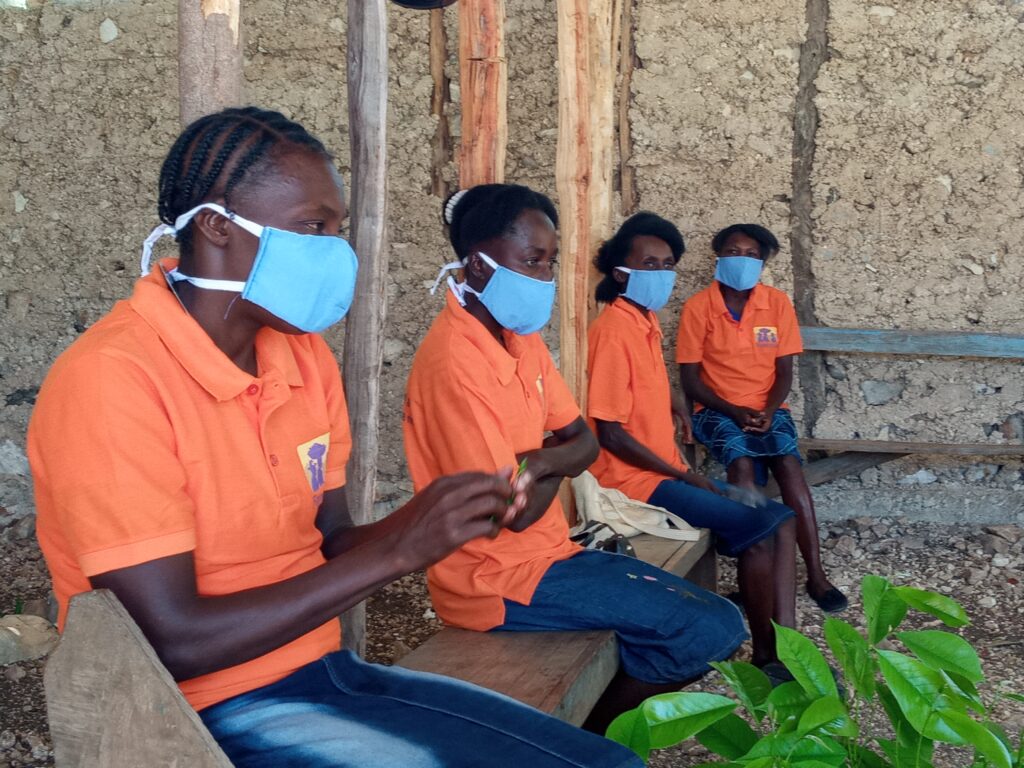
A few women talk about their changed social status. Michou said she won’t work as a maid anymore. “I will not work for someone else. I’ll work for myself.” Odette described how people who never wanted to know her are happy to help her now. “Now people will help me because they see that I am able to help people, too.”
One women, Nicole, couldn’t speak. Too moved by the occasion, she simply wept.
We then distribute the certificates, reading the text aloud, and handing one to each woman. We close with short speeches of advice. We encourage the women to keep up their hard work and to look back at their certificate at discouraging moments, taking it as a reminder of their ability to succeed despite challenges.
The next step in the process is unique to these COVID-19 graduations. As the virus was first threatening Haiti, we thought of all the measures the government might take and about those we might have to take. We wanted a way to ensure we would be able to keep in touch with families even if we we could no longer send staff into the field. So we bought a small cellphone for every member who didn’t already have one and a solar charger for each family. As it turned out, our home visits went on through to the end of the cohort, but we had purchased the cellphones and solar panels, so we distributed them as gifts at the graduation ceremonies.
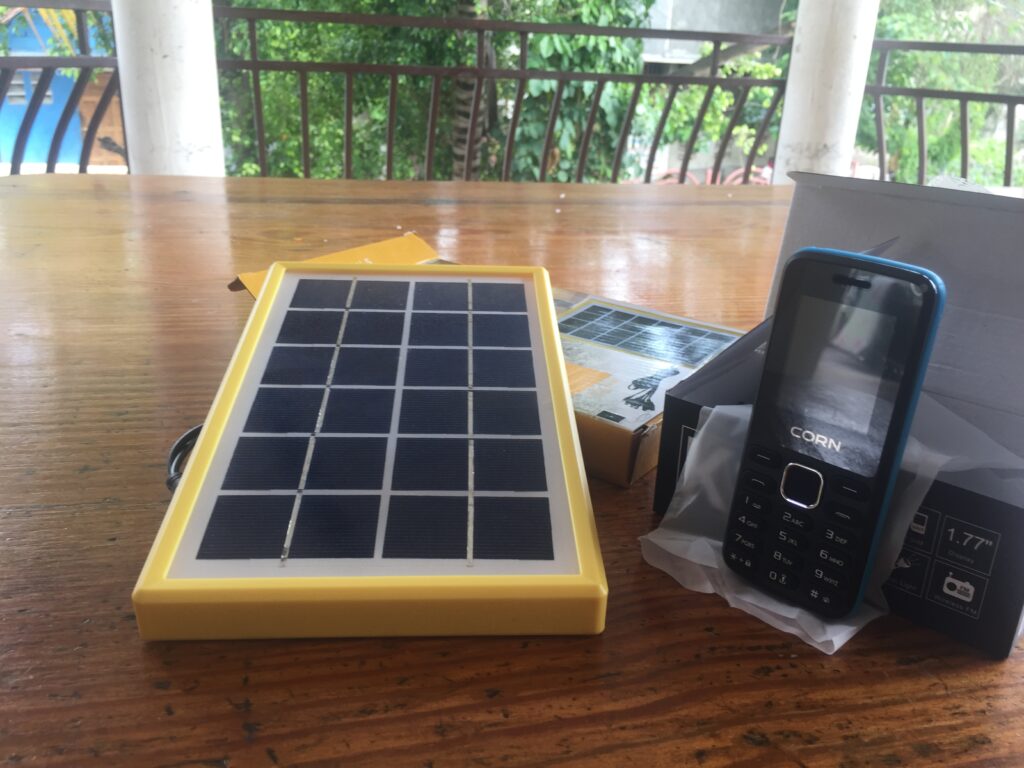
At that point, nothing remains but the meal. Each graduate gets a large plate of beans and rice, with meat sauce, fried plantain, and beet salad. It isn’t exactly festive, because we cannot encourage the women to stick around and eat their meal together. We need the space for the next group of graduates. But a meal like that makes the difference between a mere meeting and a celebration, and the women enjoy it.
We look forward to the day when we will be able to go back to our more traditional graduation. They are joyous occasions despite marking the end of close contact between the staff and the graduates. These adapted ceremonies are, by contrast, quite somber. In the meantime, however, we have a way to show the graduates how much we believe they’ve accomplished and to give them each an opportunity to speak.
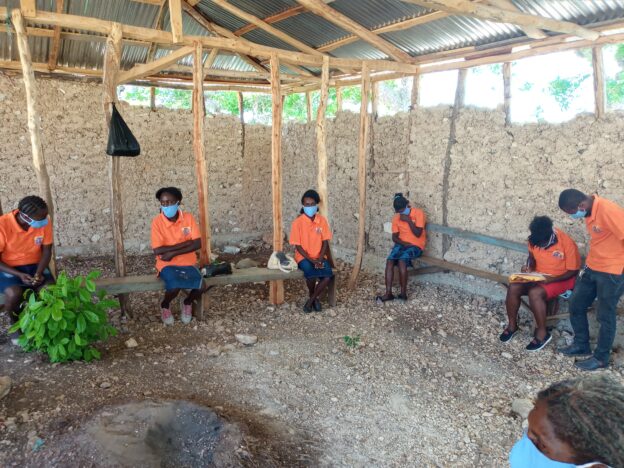
Wow, that sounds really wonderful, Steve. I am so happy you are able to do that much in these difficult times. I am sure they were very happy and felt “special” which is the most important part. A lot of work for the staff though!